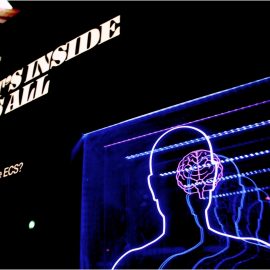

This article is an excerpt from the Shortform book guide to "Predictably Irrational" by Dan Ariely. Shortform has the world's best summaries and analyses of books you should be reading.
Like this article? Sign up for a free trial here .
What is the endowment effect? Why do we have a hard time parting with out possessions?
The endowment effect states that when you own something, you automatically value it more than other people do. This can lead to poor selling decisions and a tendency to overvalue your possessions.
Keep reading for more about the endowment effect.
The Endowment Effect
Ownership is an inherent, important part of your life—you own all sorts of things, from clothing to cars to trinkets. Unfortunately, our sense of ownership usually drives irrational selling and buying decisions and creates the endowment effect. First, we’ll look at how poor selling decisions are rooted in four particularities of human nature:
- You naturally start to love things as soon as you own them. Imagine your parents give you a dog for your birthday. You’re astounded by your parents’ spot-on intuition when picking him out—he’s a perfect match for you. However, it’s very likely that you would have felt the same about any dog your parents gave you. The “perfect match” happened not because of your parents’ intuition, but rather your natural, immediate attachment to something that’s yours.
- You focus on potential losses more than potential gains. For example, if you were thinking of putting your bike up for sale, you’ll focus more on the loss of the transaction—losing use of the bike—than on the financial gain. This loss aversion might prevent you from putting the bike up for sale at all, or might prompt you to put a ridiculously high price on it.
- You assume that the other person shares your view of the transaction. For example, if you were to sell your prom dress, you’d likely remember the night fondly and expect your buyer to notice how flattering the fit is and how it glitters in the sunlight. Your buyer, however, just sees a dress, and they’re more likely to notice some fraying around the zipper.
- Your sense of ownership becomes stronger the more work you put into an object. If you were to buy a broken, old bike and refurbish it completely, you’d likely feel a stronger sense of ownership for it than you would for a bike that you bought in brand new condition.
Navigating the Endowment Effect
These particularities combine to create the endowment effect—that is, when you own something, you automatically value it much more than other people do.
The endowment effect contributes to poor selling decisions in several ways.
- First, when you love an object or are focused primarily on the loss of the object, it will likely be much harder to part with—this drives you to place an exorbitant price on it, or choose not to sell it at all.
- Second, you’re likely to put a too-high price on items you’ve put a lot of work into—you’re pricing based on your effort, not based on the actual value of the item.
- Third, even if you drastically overprice an item, you’ll assume that the price you’ve chosen is a fair price because you understand all the item’s pleasant, cost-worthy quirks. You don’t take into account that the buyer won’t see the item as better or different from another, similar, lower-priced item.
Many people fall victim to the endowment effect when they put their houses on the market. Selling a house can be an emotional affair—the sellers have put years of work into the house and the landscaping, they’re focused on losing the place where their children grew up, and they’re fond of all the house’s wonderful quirks. Due to these factors, many sellers naturally assume that their house is worth more than similar houses. Subsequently, they price their home far above the neighborhood’s market value and reject offers that don’t reflect the value that they believe their homes have.
Don’t Let Ownership Own You
It’s very hard—perhaps impossible—to overcome ownership bias and teach yourself to think more objectively about the things you own. However, it’s important to realize that you overvalue and are inherently more confident about things that are “yours.” This is why you probably think you have better music taste than the average person or the way you decorate your home is best.
Even if you can’t think objectively about your possessions, you can make better decisions if you recognize how your ownership colors your perception. Once you have this awareness, you’re in a better position to consider the advice of more neutral parties—such as a friend or real estate agent—who have a clearer, unburdened idea of the value of your possessions.

———End of Preview———
Like what you just read? Read the rest of the world's best book summary and analysis of Dan Ariely's "Predictably Irrational" at Shortform .
Here's what you'll find in our full Predictably Irrational summary :
- How logic is failing you on a daily basis
- How to identify your irrational behaviors
- Why getting something for free can cause you to make bad decisions






